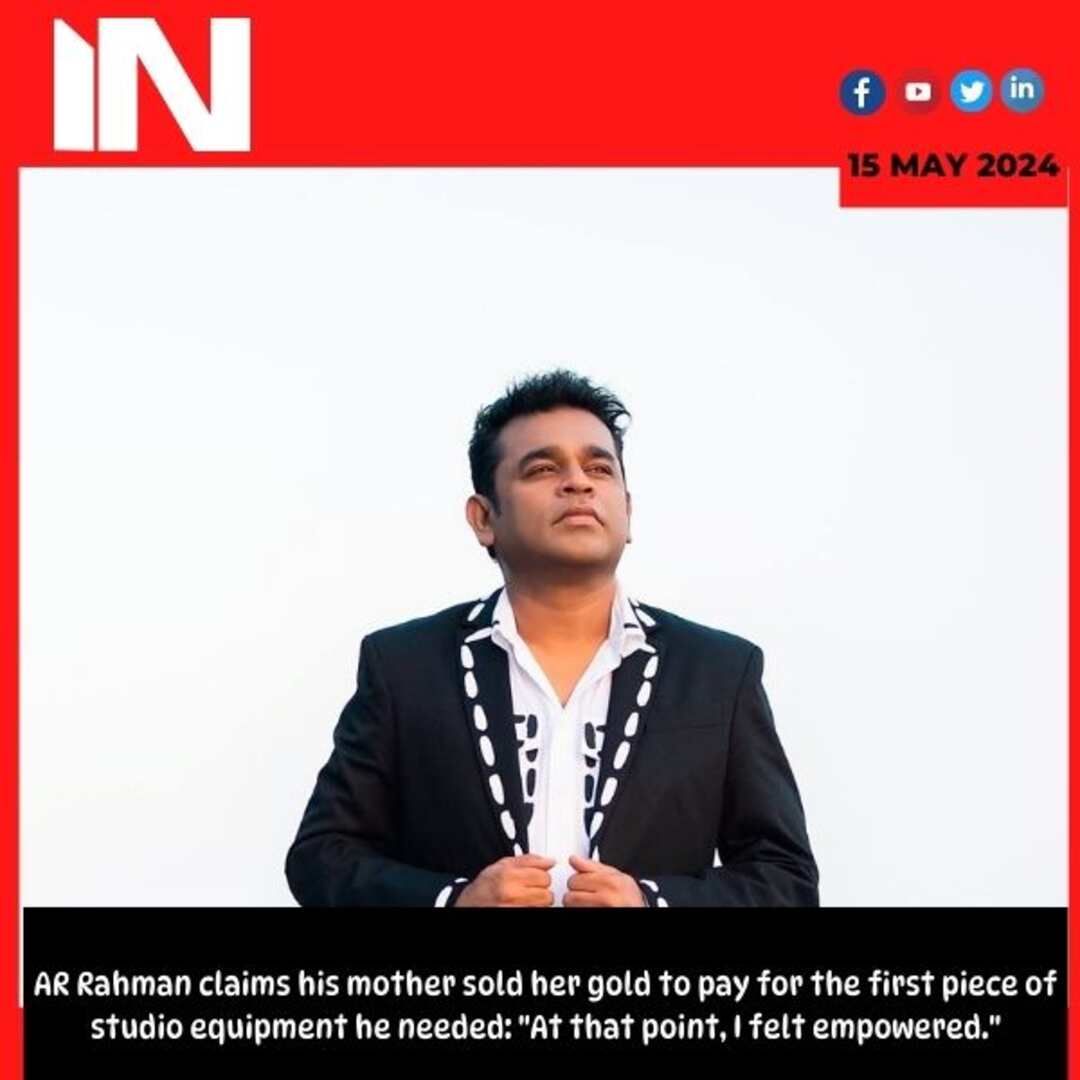Music
AR Rahman claims his mother sold her gold to pay for the first piece of studio equipment he needed: “At that point, I felt empowered.”

Trending
Karwa Chauth: What to put in and what to leave out of your sargi thali for a nutritious fast
-
%20(2).jpg)
%20(2).jpg) Celebrity Lifestyle1 month ago
Celebrity Lifestyle1 month agoKareena Kapoor reveals her new schedule; says she has dinner at 6pm, lights out at 9:30 pm: ‘Saif, the kids and me, we’re all cooking together’
-

 Celebrity News2 months ago
Celebrity News2 months agoAccording to Urvashi Rautela, Leonardo DiCaprio referred to her as the Queen of Cannes; online users refer to him as the “first Hollywood star to
-

 Web Series1 month ago
Web Series1 month agoFirst impression of a good boy: Don’t let “Pouty” Park Bo Gum deceive you; he’s throwing punches of his career.
-

 Trending1 month ago
Trending1 month agoThug Life Movie Review & Release Live Updates: Kamal Haasan’s Bold New Venture – Is it the Hit We Expected?
-
.png)
.png) Tollywood1 month ago
Tollywood1 month agoFour years after her divorce, did Samantha Ruth Prabhu get rid of her tattoo with the Naga Chaitanya link? Supporters are persuaded
-

 Trending1 month ago
Trending1 month agoGauahar Khan criticises Suniel Shetty’s C-section remark, reveals she suffered a miscarriage: ‘For a male celebrity who didn’t go through pregnancy…’
-
%20(1).jpg)
%20(1).jpg) Hailee Steinfeld1 month ago
Hailee Steinfeld1 month agoActor Hailee Steinfeld marries Buffalo Bills quarterback Josh Allen in dreamy ceremony
-
.jpg)
.jpg) Entertainment1 month ago
Entertainment1 month ago‘Deepika Padukone was in a relationship with me for two years, I broke up with her,’ says Muzammil Ibrahim: ‘We went on dates in a rickshaw’






.jpg)
.jpg)
.jpg)
.jpg)
.jpg)

.jpg)







